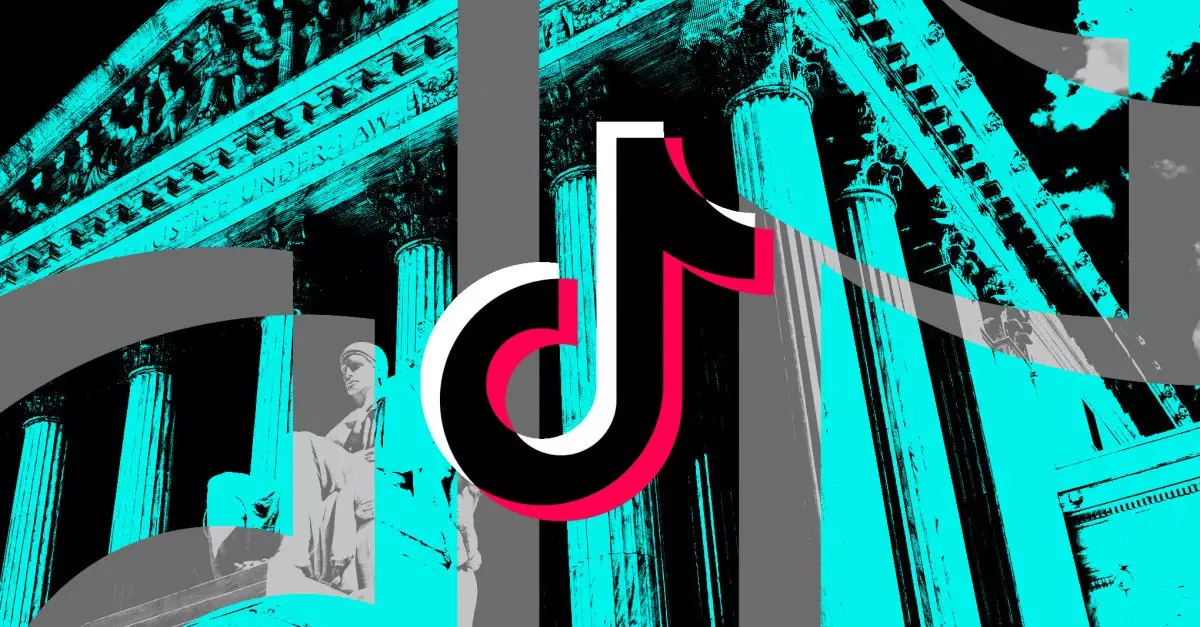The saga of TikTok’s uncertain future in the United States is as multifaceted as the app itself. Initially deemed a formidable force in social media, TikTok has become ensnared in a complex web of political machinations and economic concerns. The narrative surrounding its potential ban has evolved into a theatrical juxtaposition of innovation against the backdrop of international relations, particularly under the Trump administration. Recently, news circulated that a resolution seemed imminent, with various potential buyers, including tech giants like Oracle considering bids. However, these plans unraveled swiftly against the backdrop of a brewing trade war between the U.S. and China, underscoring how technology has become a pawn in larger geopolitical chess games.
The Oracle Bid and the Shadows of ByteDance
As negotiations progressed, Oracle emerged as a frontrunner in a consortium that included heavy hitters among ByteDance’s investors. The plan was to effectively spin TikTok into an entity that would appear independent from its Chinese parent company while retaining operational control over its advanced algorithm. This strategic play aimed to alleviate national security concerns that had clouded TikTok’s reputation in the U.S., especially among lawmakers and cybersecurity experts. However, it is essential to scrutinize the motivations behind this concerted effort. Was it genuinely about national security, or was it a manifestation of broader economic protectionism? The line is blurry, and the consequences of this ambiguity are profound, potentially altering the entrepreneurial landscape of tech firms seeking global expansion.
The Tariff War’s Effect: Complications Unraveled
In a striking turn of events, President Trump’s announcement regarding tariffs acted as a grenade tossed into these intricate negotiations, obliterating any chances for a smooth transition. Analysts and insiders have indicated that the subsequent Chinese response reflected deep discontent, effectively signaling that any agreements regarding TikTok would be complicated by reciprocal tariff negotiations. The irony is staggering; just as investors and companies were ready to step into the TikTok fray, the geopolitical climate, fueled by trade tensions, derailed all potential solutions. President Trump’s back-and-forth statements about negotiations paint a picture of uncertainty, ultimately raising questions about his commitment to fostering a working partnership with China.
Excitement and Exhaustion: The TikTok Rollercoaster
For stakeholders—ranging from employees, users, and investors—the constant shifts in TikTok’s status create an exhausting cycle of hope and despair. Despite the chaos, the desire for resolution had reached a fever pitch, where every headline felt like a new twist in a high-stakes drama. Users who had integrated the app into their daily lives and careers were left dangling in limbo, anxious and unsure if their digital playground would vanish overnight. It raises an unsettling issue: how far will regulatory actions disrupt consumer choice in an age where apps shape social interactions, creativity, and commerce? This situation serves as a critical case study on the balancing act between national interests and individual freedoms, illustrating the often-hidden consequences of technological governance.
Implications for Future Innovation and Policy
Beyond TikTok, this episode reveals intrinsic challenges surrounding technology regulation, especially in an era increasingly governed by innovation and algorithmic sophistication. If policymakers fail to adapt and understand the technical nuances of platforms like TikTok, they risk stifling the very creativity and entrepreneurial spirit that drive the tech sector. The measures taken to “protect” citizens can backfire, leading, ironically, to restraint on an industry that has proven pivotal to social connectivity and economic dynamism.
Moreover, as companies like Oracle chase after tech deals in uncomfortable domestic environments, they face the dilemma of aligning business strategies with fluctuating political landscapes. The larger question revolves around whether firms can thrive in environments fraught with policy volatility while adhering to ethical standards and international norms. TikTok is not just a platform; it’s a barometer of what happens when competitive innovation collides with political agendas.
Anticipating Change in the Tech Landscape
As we await the unfolding events around TikTok and related regulatory stances, it’s crucial to contemplate the long-term implications for the tech sector in both the U.S. and globally. Are we entering an era where apps are increasingly viewed as threats rather than assets? This change in perspective could trigger a cascade of similar regulations affecting future startups and innovations. The dynamics at play also provide fertile ground for alternative platforms, potentially arising from the ashes of those caught in regulatory crosshairs like TikTok. The inherent lesson here extends beyond one app; it’s a warning that the tech industry’s landscape is inevitably shaped by the interplay of innovation, consumer demand, and policy decision-making.
This intricate saga is more than a story about one app; it is a reflection of the complexities we face in navigating the intersection of technology and politics in a rapidly evolving digital landscape.

